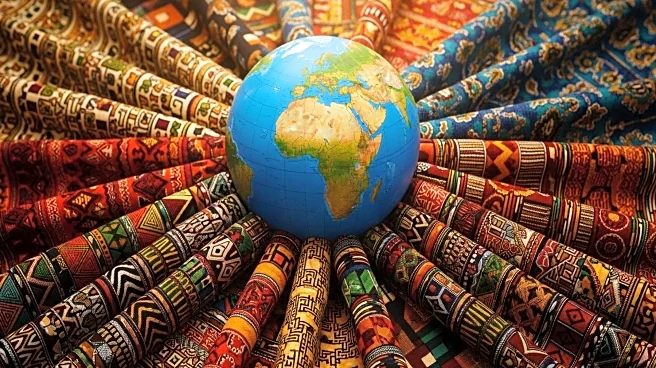What is the story about?
What's Happening?
The African Growth and Opportunity Act (AGOA), a key trade agreement between the United States and sub-Saharan Africa, is facing uncertainty following recent political decisions in Washington. AGOA, established in 2000, provides preferential access to the U.S. market for nearly 7,000 products, including textiles and apparel, contingent on meeting specific political and economic criteria. This agreement has been crucial for industrial development and job creation in African countries such as Lesotho, Madagascar, South Africa, Kenya, and Mauritius. As the deadline for AGOA's renewal approached on September 30, 2025, discussions in Washington have raised concerns about the future of the agreement. The White House has expressed support for a one-year extension, offering temporary relief to African nations. However, this extension does not address long-term uncertainties, prompting African countries to consider diversifying their trade partnerships and enhancing competitiveness.
Why It's Important?
AGOA has been instrumental in boosting the textile and apparel sectors in several African countries, providing tariff advantages that enhance competitiveness in the U.S. market. The potential end or reduction of AGOA could lead to increased export costs, making African products less competitive compared to those from Asia or Latin America. This scenario threatens employment, with entire sectors at risk of job cuts, particularly in garment manufacturing zones. The loss of U.S. market access would also reduce foreign currency inflows, impacting the ability of countries to finance imports and investments. Additionally, foreign investors might relocate production to countries with better access or lower costs, weakening the industrial base built over 25 years. The uncertainty surrounding AGOA underscores the need for African countries to strengthen local value addition, accelerate regional integration, and negotiate bilateral agreements to mitigate potential impacts.
What's Next?
African countries are exploring strategies to adapt to the potential changes in AGOA. These include enhancing local value addition by moving towards technical textiles and products that meet environmental, social, and governance requirements. Accelerating regional integration through the African Continental Free Trade Area (AfCFTA) could create alternative markets and reduce dependence on the U.S. market. Negotiating bilateral agreements and attracting finance for modernization efforts, such as energy efficiency and targeted robotization, are also being considered. These measures aim to offset any potential tariff shocks and ensure the sustainability of the textile sector. The situation presents an opportunity for industrial transformation and diversification of trade partners, urging African policymakers and manufacturers to actively negotiate adjustments to U.S. market access and accelerate internal transformations.
Beyond the Headlines
The AGOA situation highlights the vulnerability of African economies to foreign political decisions. While the short-term risks include potential job losses and weakened industrial bases, the medium-term outlook could drive industrial transformation and diversification of trade partners. This challenge serves as a catalyst for African countries to strengthen their economic resilience and reduce dependence on single markets. The urgency for African policymakers and textile manufacturers is to negotiate favorable terms with the U.S. while pursuing internal reforms that enhance competitiveness and sustainability.
















